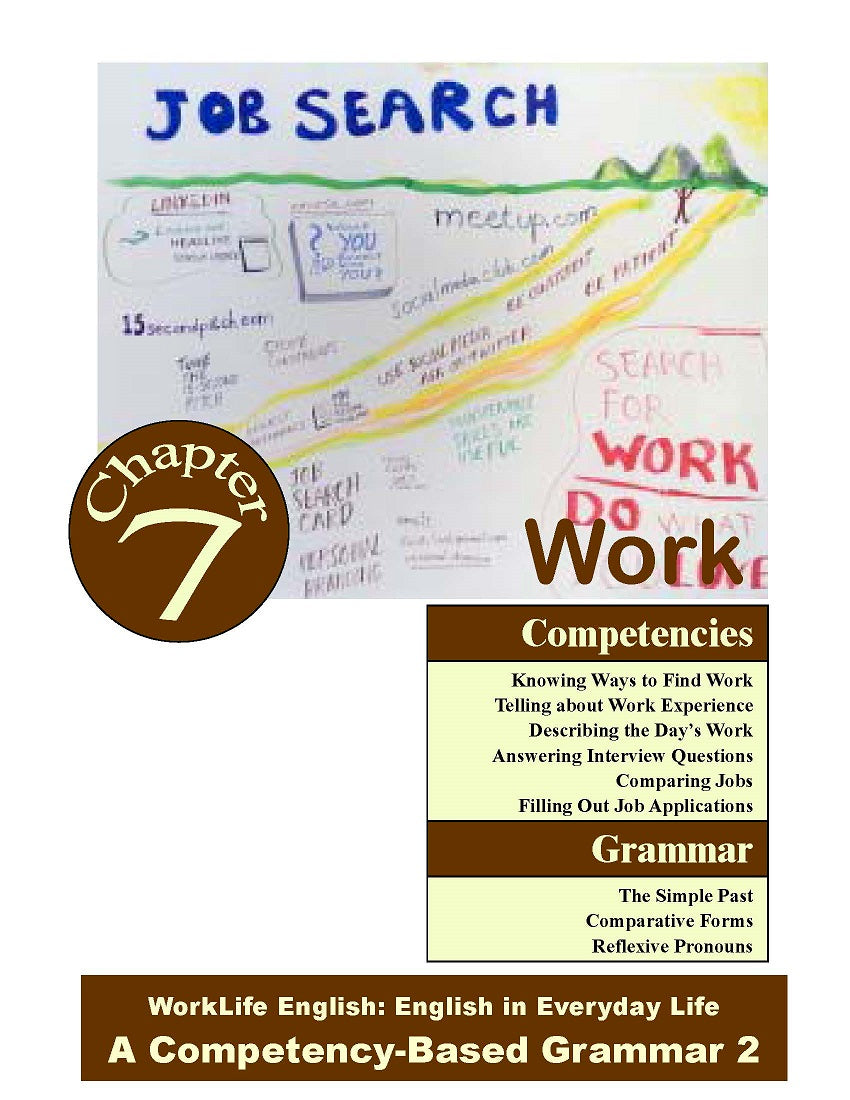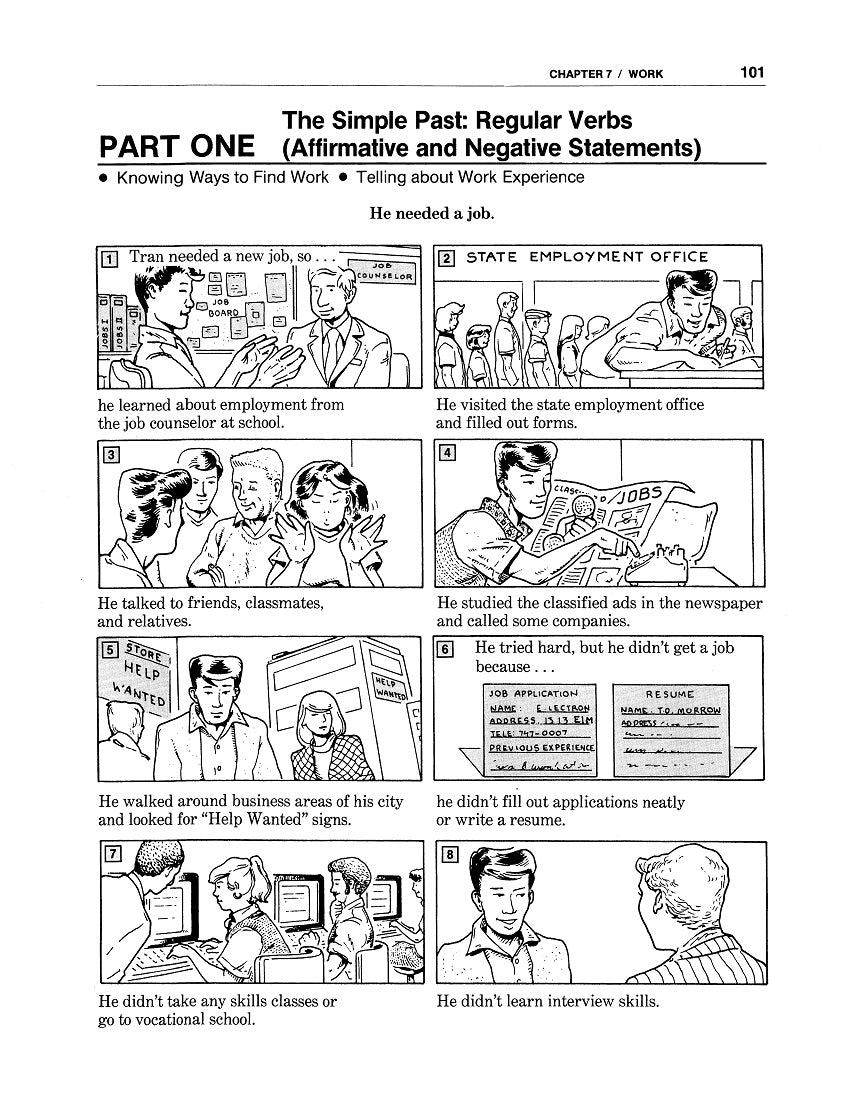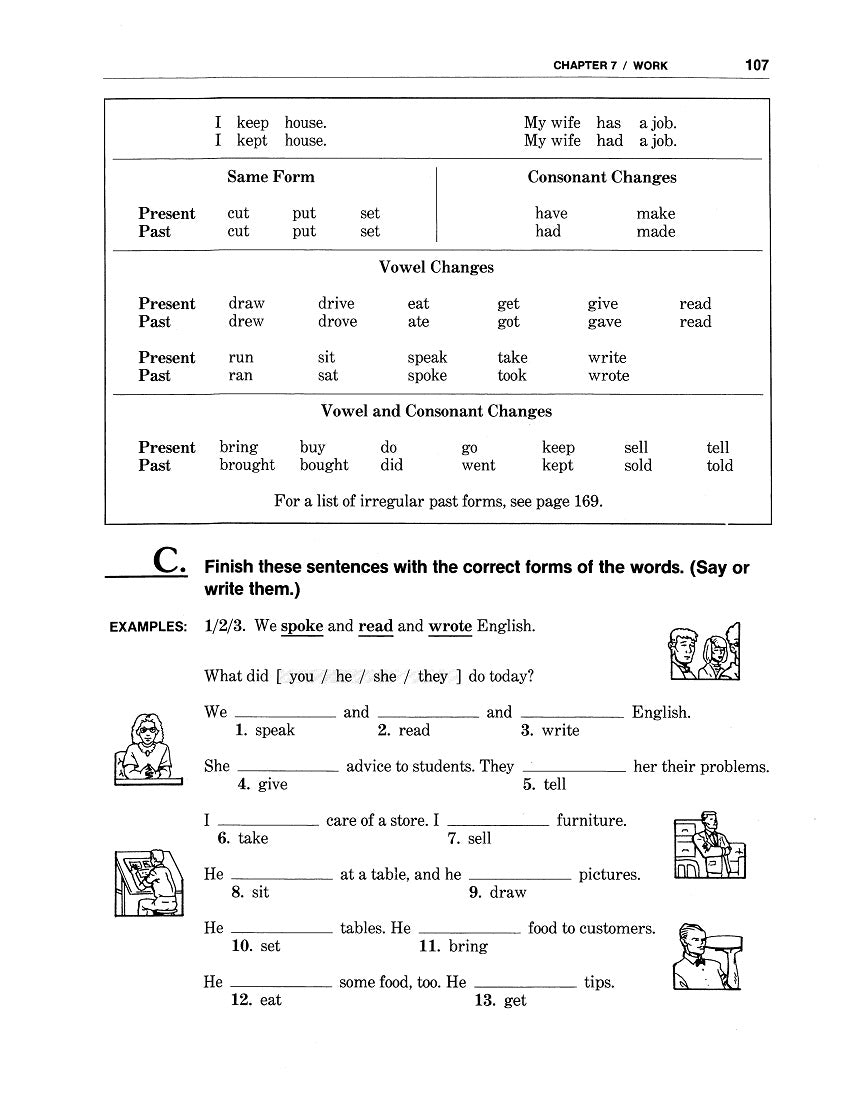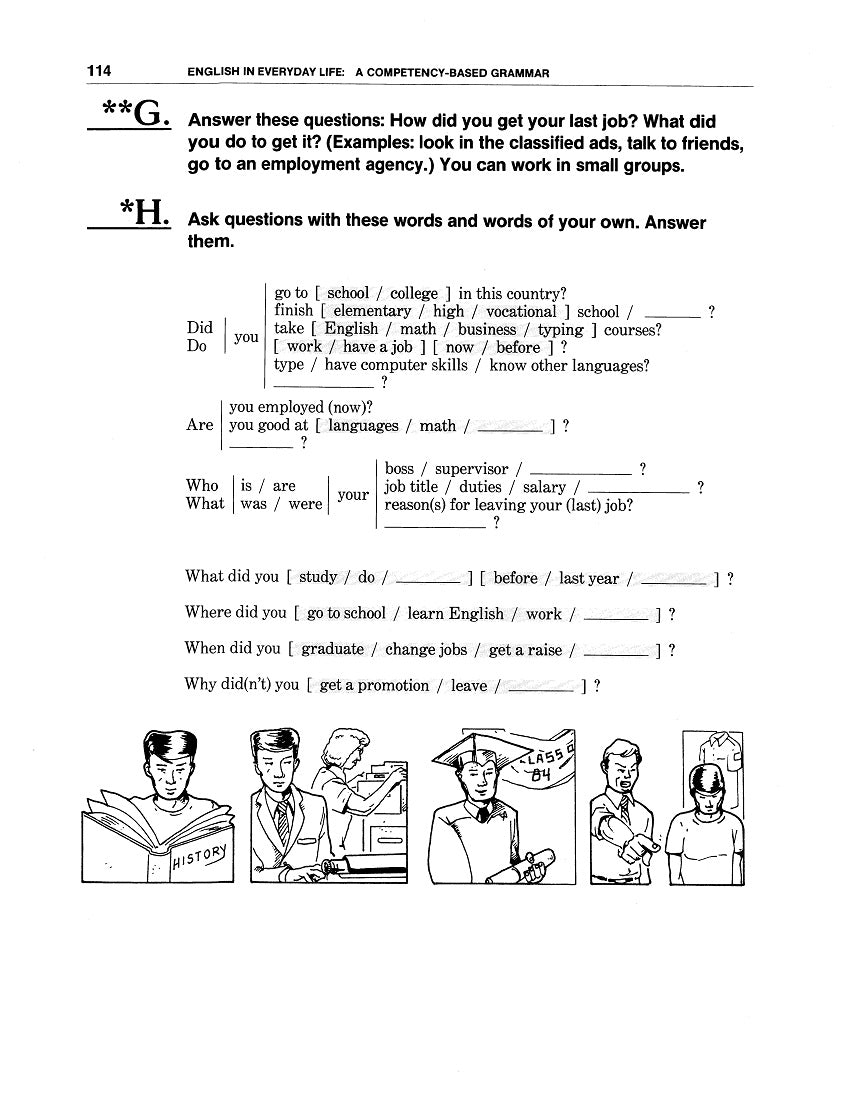1
/
of
4
Work/Life English
D-08.02 Use Regular & Irregular Simple-Past Verbs in Affirmative & Negative Statements & Questions
D-08.02 Use Regular & Irregular Simple-Past Verbs in Affirmative & Negative Statements & Questions
Regular price
$3.00 USD
Regular price
Sale price
$3.00 USD
Unit price
/
per
Parts One, Two, & Three of Chapter 7 (“Work”) of WorkLife English Grammar 2: English in Everyday Life, pages 100-114
15 pages
Who It’s For: (Self) Teachers & Helpers at Beginning Learning Levels
Why It’s Useful: Within the world of work, there are many situations that require recognition or use of simple-past-tense verbs. When looking for employment, it helps to hear or read what successful job seekers did. To complain about how hard a job search is, you’ll have to name the steps you took that didn’t work or the actions you didn’t take. When you answer the question “How was your day?” you might narrate the tasks you completed or didn’t get around to. And if you do have a job interview, you’ll probably describe your past work experience. These and other realistic work-related situations provide context for these two excerpted chapter Parts.
What You’ll Do:
[1] With participants, pantomime and read aloud the page 101 Part One: Narrative “He needed a job.” Notice Regular Past Verbs in Affirmative & Negative Statements, noting how they relate to the Competencies the text addresses (“Knowing Ways to Find Work,” and “Telling about Work Experience”). On pages 102-104, identify base vs. past verbs in boxed explanations and exercise items. Follow instructions to complete Sections A-*E, telling about your own and others’ past activity.
[2] In Part Two: the Simple Past: Irregular Verbs on pages 105-108, understand and act out the illustrated dialog “I did a lot today.” Beginning with was(n’t) / were(n’t), use the section to learn and retain the “first two parts” of the (4 groupings of) 26 included verbs: cut / cut; have / had; get / got; sit / sat; bring / brought; etc. From now on, refer to (Lists of) Irregular Past Forms in grammars, dictionaries, and online.
[3] In Part Three: the Simple Past: Questions & Answers on pages 109-114, get pedagogy and practice (in asking and answering interview questions) with the opening story, “Tran has a job interview” + follow-up.
Couldn't load pickup availability








